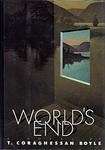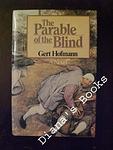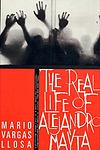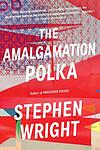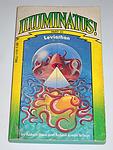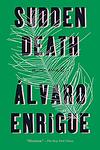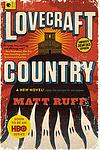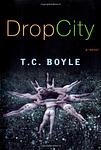The Greatest "Historical fiction, Fiction, Satire" Books Since 1980
Click to learn how this list is calculated.
This list represents a comprehensive and trusted collection of the greatest books. Developed through a specialized algorithm, it brings together 300 'best of' book lists to form a definitive guide to the world's most acclaimed books. For those interested in how these books are chosen, additional details can be found on the rankings page.
Genres
Historical fiction is a genre of literature that combines fictional stories with real historical events, settings, and characters. These books often take place in a specific time period and are based on research and factual information, but also include imaginative elements to create a compelling narrative. Historical fiction allows readers to experience the past in a unique and engaging way, while also providing insight into the social, cultural, and political issues of the time.
Satire is a genre of literature that uses humor, irony, and exaggeration to criticize and ridicule human vices, follies, and shortcomings. It is a form of social commentary that aims to expose the flaws and absurdities of society, politics, and culture. Satirical books often employ sarcasm, wit, and parody to challenge the status quo and provoke thought and reflection in readers. Satire can be both entertaining and thought-provoking, and it has been used throughout history as a powerful tool for social and political critique.
Countries
Date Range
Reading Statistics
Click the button below to see how many of these books you've read!
Download
If you're interested in downloading this list as a CSV file for use in a spreadsheet application, you can easily do so by clicking the button below. Please note that to ensure a manageable file size and faster download, the CSV will include details for only the first 500 books.
Download-
1. Midnight's Children by Salman Rushdie
The novel tells the story of Saleem Sinai, who was born at the exact moment when India gained its independence. As a result, he shares a mystical connection with other children born at the same time, all of whom possess unique, magical abilities. As Saleem grows up, his life mirrors the political and cultural changes happening in his country, from the partition of India and Pakistan, to the Bangladesh War of Independence. The story is a blend of historical fiction and magical realism, exploring themes of identity, fate, and the power of storytelling.
-
2. The Amazing Adventures of Kavalier and Clay by Michael Chabon
The book follows the lives of two Jewish cousins, one a skilled escape artist and the other a talented artist, before, during, and after World War II. They create a popular comic book superhero, which brings them fame and fortune. However, their success is complicated by personal struggles, including the escape artist's attempts to rescue his family from Nazi-occupied Prague and the artist's struggle with his sexuality. The narrative explores themes of escapism, identity, and the golden age of comic books.
-
3. Earthly Powers by Anthony Burgess
"Earthly Powers" is a sprawling, complex novel that explores the intertwined lives of a homosexual British writer and an Italian-American Cardinal over the course of the 20th century. The narrative delves into themes of faith, homosexuality, and the nature of evil, while also providing a critique of modern society. It's a vivid tapestry of historical events, including two World Wars and Vatican II, providing a backdrop for the personal and spiritual struggles of its protagonists.
-
4. The Sympathizer by Viet Thanh Nguyen
"The Sympathizer" is a gripping spy novel set during the Vietnam War. The protagonist is a half-French, half-Vietnamese army captain who is a communist double agent. After the Fall of Saigon, he moves to America with other South Vietnamese refugees and struggles to reconcile his dual loyalties as he continues to spy on his fellow countrymen in exile. The novel explores themes of identity, war, and politics, while providing a unique perspective on the Vietnam War and its aftermath.
-
5. The Moor's Last Sigh by Salman Rushdie
This novel follows the life of Moraes Zogoiby, the last in line of a once powerful and influential Indian family. Told from his perspective, Moraes recounts his family's history, starting with his grandparents and moving through to his own life. The narrative is filled with tales of love, betrayal, political unrest, and the supernatural. The protagonist's life is marked by a strange curse that causes him to age twice as fast as a normal human, adding a layer of urgency and tragedy to his story. The book explores themes of cultural identity, family legacy, and the passage of time.
-
6. World's End by T. C. Boyle
"World's End" is a multigenerational saga that takes place in upstate New York. The narrative alternates between the 17th century, where a Dutch estate is the setting for a brutal power struggle between a master and his rebellious servant, and the 1960s, where a young man struggles with his family's past and his own place in the world. The book explores themes of power, class, and the cyclical nature of history.
-
7. The Great Indian Novel by Shashi Tharoor
This book is a satirical take on Indian politics and history, cleverly intertwined with characters and events from the epic Mahabharata. The narrative presents a parallel between the two, with the characters in the novel mirroring significant figures from India's political scene during the Independence and post-Independence era. The book is a humorous yet thought-provoking critique of Indian society and politics, offering a unique blend of myth, history, and satire.
-
8. Good Behaviour by Molly Keane
"Good Behaviour" is a darkly humorous and compelling novel that delves into the dysfunctional lives of the St. Charles family. Set in the early 20th century, the story is narrated by Aroon, the youngest daughter, who chronicles her family's eccentricities, secrets, and the complex dynamics that shape their relationships. As Aroon navigates her way through a world of privilege and societal expectations, she grapples with her own desires and the consequences of her actions. With sharp wit and keen observations, the novel explores themes of love, betrayal, and the lengths people will go to maintain appearances.
-
9. The Gospel According To Jesus Christ by José Saramago
This novel offers a provocative and humanized retelling of the life of Jesus Christ, diverging from traditional biblical narratives. It presents a Jesus who is all too human, grappling with the complexities of life, love, and a sense of destiny. Through a blend of biblical lore and imaginative fiction, the story explores themes of divinity, free will, and morality, challenging readers to reconsider the foundations of faith and the nature of storytelling itself. The narrative delves into Jesus's relationships, his encounters with figures such as God and the Devil, and ultimately portrays a deeply philosophical and introspective version of a figure central to Western civilization.
-
10. The Parable of the Blind by Gert Hofmann
"The Parable of the Blind" is a darkly comedic novel that follows six blind men who are hired to pose as models for a famous painter's depiction of a biblical parable. As they journey to the painter's studio, they struggle with their dependence on each other and the outside world, grappling with the limitations and challenges of their blindness. The narrative explores themes of human vulnerability, the nature of perception, and the absurdity of existence.
-
11. Illywhacker by Peter Carey
The novel is a sprawling tale of deception, magic, and family history, narrated by a 139-year-old Australian con artist. He recounts his life's adventures, from snake handling to aircraft manufacturing, while weaving in the stories of his descendants. The narrative is a blend of historical fiction and tall tales, exploring themes of national identity, truth, and the art of storytelling itself. Through the protagonist's unreliable narration, the book challenges the reader to discern fact from fiction, all while painting a vivid picture of Australian society and its transformation over the 20th century.
-
12. The Real Life of Alejandro Mayta by Mario Vargas Llosa
This novel revolves around a failed Peruvian revolution and the man who attempted to lead it, Alejandro Mayta. The story is told from the perspective of a novelist who is researching Mayta's life and the events surrounding the failed uprising. The narrative oscillates between the present and the past, unraveling the complex threads of Mayta's personal history, political beliefs, and the broader socio-political context of Peru. The novel explores themes of truth, fiction, and the blurry lines between them.
-
13. The Cunning Man by Robertson Davies
The novel follows the life of a Toronto doctor who uses his knowledge of medicine and his understanding of human nature to treat his patients. He believes in the healing power of the human spirit and often uses unconventional methods to treat his patients. The narrative is filled with his interesting patients and their stories, as well as his own personal journey. The book also explores themes of spirituality, love, and the complexities of human nature.
-
14. Solomon Gursky Was Here by Mordecai Richler
This novel is a sprawling epic that traces the multi-generational saga of the Gursky family, rumored to have been inspired by the real-life Bronfman dynasty, Canadian liquor magnates. At its core, it follows the enigmatic figure of Solomon Gursky, whose life is shrouded in myth and mystery, from his forebears' escape from Jewish persecution in Europe to his own adventures in the Arctic, and the eventual establishment of a powerful business empire in North America. Through the eyes of Moses Berger, a writer obsessed with uncovering the truth about Solomon, the narrative delves into themes of identity, legacy, and the complexities of the human condition, all set against the backdrop of Canada's development and cultural history.
-
15. Deacon King Kong by James McBride
"Deacon King Kong" by James McBride is a novel set in 1969 Brooklyn, where a drunken Deacon Sportcoat shoots a drug dealer named Deems Clemens in the courtyard of the Cause Houses housing project. The shooting sets off a chain of events that brings together a cast of characters from the neighborhood, including a young drug dealer, a church-going widow, a corrupt cop, and a group of elderly church women. Through their perspectives, McBride explores themes of race, religion, and community in a vibrant and humorous tale.
-
16. Memoirs Of A Gnostic Dwarf by David Madsen
This novel offers a vivid and provocative portrayal of the Vatican during the Renaissance, seen through the eyes of a dwarf who serves Pope Leo X. The narrative delves into the corruption, intrigue, and scandal that pervade the Holy See, presenting a stark contrast between the spiritual ideals of the Church and the worldly, often debauched behavior of its leaders. The dwarf, possessing a sharp intellect and a unique perspective, navigates this morally complex environment, exploring themes of faith, power, and the nature of truth. His journey is not only a physical one through the lavish and sometimes grotesque landscapes of the Vatican but also a spiritual and philosophical quest for understanding and redemption.
-
17. Water Music by T. C. Boyle
"Water Music" is a historical fiction novel that follows the adventures of two men, an explorer and a petty criminal, during the late 18th century. The narrative alternates between the perspectives of the explorer, who embarks on a quest to discover the source of the Niger River in Africa, and the criminal, who is trying to navigate the underbelly of London. The novel blends humor, rich historical detail, and adventure as it explores themes of ambition, survival, and the clash of cultures.
-
18. George Mills by Stanley Elkin
This novel follows the story of George Mills, a character cursed by his lineage to be an eternal servant, a fate passed down from generation to generation for a thousand years. The narrative explores the trials and tribulations of Mills as he navigates his life, dealing with his inherited servitude and the societal changes around him. The book delves into themes of destiny, fate, and the human condition, offering a poignant commentary on class struggle and the power of individual will.
-
19. The Ill Fated Peregrinations Of Fray Servando by Reinaldo Arenas
The book is a fictionalized account of the life of Fray Servando Teresa de Mier, a real-life Dominican friar from the 18th century. It follows his numerous escapes from colonial authorities across Latin America and Spain after he delivered a controversial sermon in Mexico City. The narrative, infused with magical realism, portrays Fray Servando's adventures and misfortunes as he becomes a symbol of freedom and resistance against oppressive regimes. His journey is marked by a series of bizarre and fantastical encounters, reflecting the author's critique of totalitarianism and exploration of the themes of liberty, identity, and the absurdity of political persecution.
-
20. The Amalgamation Polka by Wright, Stephen
The novel is a vivid and surreal exploration of the American experience during the Civil War era, following the life of Liberty Fish, a young man born to abolitionist parents. As Liberty comes of age, he is drawn into the tumultuous events of his time, embarking on a journey that takes him from his upstate New York home to the deep South, where he confronts the brutal realities of slavery and war. The narrative weaves a tapestry of history and fantasy, examining themes of identity, heritage, and the inescapable nature of violence in the shaping of American culture.
-
21. Leviathan by Robert Shea, Robert Anton Wilson
This book is a satirical science fiction novel that delves into conspiracy theories, secret societies, and the nature of reality. It follows a diverse cast of characters, including detectives, spies, and occultists, as they navigate a complex plot involving the Illuminati, a shadowy organization believed to control world events. Set against a backdrop of historical and fictional events, the narrative weaves together disparate threads into a tapestry that challenges the reader's perception of truth and power. The novel's blend of humor, philosophy, and speculative fiction makes it a unique exploration of control, freedom, and the human condition.
-
22. Raavan & Eddie by Kiran Nagarkar
"Raavan & Eddie" is a captivating coming-of-age story set in the bustling streets of Mumbai. The book follows the lives of two young boys, Raavan and Eddie, who grow up in the same chawl and share a unique bond. As they navigate the challenges of poverty, family dynamics, and societal expectations, their friendship is tested, and their dreams take them on unexpected paths. With humor, heart, and a vivid depiction of Mumbai's vibrant culture, this novel explores themes of identity, love, and the pursuit of dreams in a rapidly changing world.
-
23. Sudden Death by Alvaro Enrigue
"Sudden Death" is a historical fiction novel that revolves around a fictional tennis match between the Italian painter, Caravaggio, and the Spanish poet, Francisco de Quevedo. The narrative jumps through time and space, touching on the conquest of the Americas, the political machinations of the Vatican, and the personal lives and rivalries of historical figures. The book uses this surreal and humorous setup to explore themes of art, power, and the chaotic, violent nature of the world.
-
24. Lovecraft Country by Matt Ruff
"Lovecraft Country" is a captivating and thought-provoking novel that seamlessly blends elements of horror, science fiction, and historical fiction. Set in the 1950s, the story follows a young African American man named Atticus Turner as he embarks on a dangerous journey through the racially segregated United States. Along the way, Atticus and his friends encounter supernatural forces, face institutional racism, and confront the horrors of Lovecraftian mythology. With its richly drawn characters and exploration of racial tensions, the book offers a unique and compelling perspective on both the genre of horror and the complexities of American society.
-
25. Drop City by T. Coraghessan Boyle
Set in the 1970s, the novel follows a group of young idealists who form a commune in the wilderness of Alaska with the goal of creating a utopia. The story explores the dynamics within the group, the challenges they face living off the land, and the clash between their ideals and the harsh realities of life in the wilderness. The book also delves into the tension between the commune and the local Alaskan community.
Reading Statistics
Click the button below to see how many of these books you've read!
Download
If you're interested in downloading this list as a CSV file for use in a spreadsheet application, you can easily do so by clicking the button below. Please note that to ensure a manageable file size and faster download, the CSV will include details for only the first 500 books.
Download




